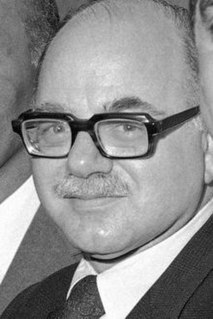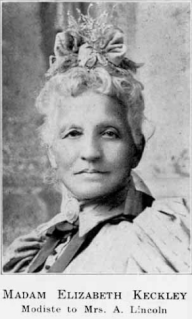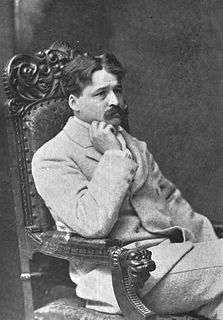A Quote by Frances Wright
The existing principle of selfish interest and competition has been carried to its extreme point; and, in its progress, has isolated the heart of man, blunted the edge of his finest sensibilities, and annihilated all his most generous impulses and sympathies.
Related Quotes
As man advances in civilization, and small tribes are united into larger communities, the simplest reason would tell each individual that he ought to extend his social instincts and sympathies to all members of the same nation, though personally unknown to him. This point being once reached, there is only an artificial barrier to prevent his sympathies extending to the men of all nations and races.
At present, man applies to nature but half his force. He works on the world with his understanding alone. He lives in it, and masters it by a penny-wisdom; and he that works most in it, is but a half-man, and whilst his arms are strong and his digestion good, his mind is imbruted, and he is a selfish savage.
Sympathy is the first great lesson which man should learn. It will be ill for him if he proceeds no farther; if his emotions are but excited to roll back on his heart, and to be fostered in luxurious quiet. But unless he learns to feel for things in which he has no personal interest, he can achieve nothing generous or noble.
The reason for the slow progress of the world seems to lie in a single fact. Every man is born under the yoke, and grows up beneath the oppressions of his age. He can only get a vision of the unselfish forces in the world by appealing to them, and every appeal is a call to arms. If he fights he must fight, not one man, but a conspiracy. He is always at war with a civilization. On his side is proverbial philosophy, a galaxy of invisible saints and sages, and the half-developed consciousness and professions of everybody. Against him is the world, and every selfish passion in his own heart.
It is easy to bare your body, but it is difficult to bare your soul. What works for me is that I am not a city-raised boy with city-raised sensibilities. I can play the vulnerable tough man, the guy with a gun in his hand, tears in his eyes, fire in his heart, innocence in him, and in his arms a woman he loves.





































